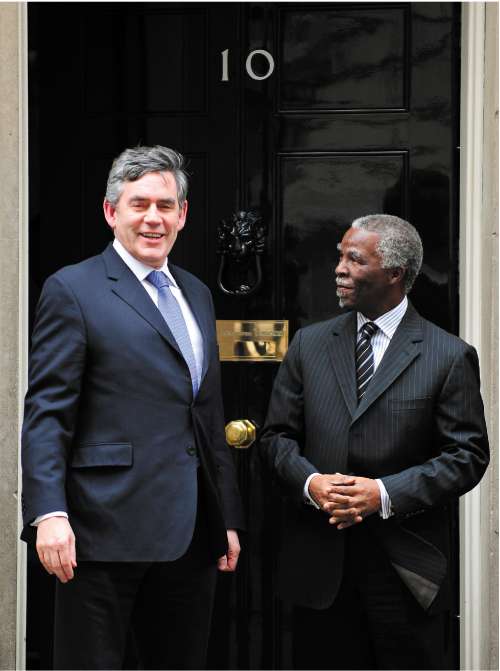Brown allies join rebellion over scrapping of lowest tax band

Your support helps us to tell the story
From reproductive rights to climate change to Big Tech, The Independent is on the ground when the story is developing. Whether it's investigating the financials of Elon Musk's pro-Trump PAC or producing our latest documentary, 'The A Word', which shines a light on the American women fighting for reproductive rights, we know how important it is to parse out the facts from the messaging.
At such a critical moment in US history, we need reporters on the ground. Your donation allows us to keep sending journalists to speak to both sides of the story.
The Independent is trusted by Americans across the entire political spectrum. And unlike many other quality news outlets, we choose not to lock Americans out of our reporting and analysis with paywalls. We believe quality journalism should be available to everyone, paid for by those who can afford it.
Your support makes all the difference.Allies of Gordon Brown have joined a growing Labour rebellion against one of his flagship tax policies, and he now faces a showdown with his MPs later this month.
In a report published today, the Labour-dominated Treasury Select Committee warns that Mr Brown's abolition of the income-tax starting rate of 10p in the pound in his final Budget as Chancellor last year will hit the low-paid. It expresses concern people will miss out on compensation payments through his complex tax credits scheme.
The rebellion comes at a sensitive time for Mr Brown, who faces poor results in the council and London Mayor elections on 1 May, his first as Labour leader. An ICM poll for the Sunday Telegraph put the Tories on 43 per cent, Labour on 32 per cent and the Liberal Democrats on 18 per cent, enough to give David Cameron a Commons majority of more than 40 seats.
Cabinet ministers admitted privately Labour faces "six months of grief" as voters worry about the global economic downturn. The same poll found that more than half of voters are reining in their personal spending. Rebel Labour backbenchers will table an amendment to the Finance Bill, to be discussed when the Commons returns on 21 April, calling for the losers from the tax shake-up to be compensated. With more than 100 Labour backbenchers said to oppose the move, government whips are already working overtime to try to quell the revolt.
Frank Field, the former minister for welfare reform, who will seek to bring in compensation for the losers, said yesterday: "The money taken from the low-paid is there to finance those on average and higher pay."
There is confusion in Labour ranks about the Government's intentions. Greg Pope, a former whip, withdrew a protest motion last week after winning the backing of 25 other Labour MPs. He said: "The Government offered to look again at the situation."
But Downing Street and the Treasury insist that no rethink is on the cards. Their attempts to quell the revolt will be undermined by the select committee's finding that the low-paid are "an unreasonable target".
The committee is chaired by John McFall, a long-standing ally of the Prime Minister. He said last night: "While tax simplification is a laudable aim, it seems strange that the abolition of the 10p starting rate of income tax disadvantages mainly low-income households. As such, the Government must ensure that these people are identified, and appropriate help given to them to ensure they receive the benefits to which they are entitled."
More than 5 million people earning between £5,000 and £18,500 a year could lose up to £232 annually from the abolition of the 10p rate, which took effect yesterday at the start of the new financial year. It was part of a shake-up in which Mr Brown cut the basic rate of income tax from 22p to 20p in the pound.
Ministers argue that families with children have already been compensated through tax credits but admit that single people and couples without children could be worse off. The select committee expressed concern about the "poor take-up rate" of working tax credits among families without children.
John Hutton, the Business Secretary, admitted there were "concerns" but ruled out a U-turn. "This package of measures was voted on and debated last year," he told The Andrew Marr Show. He insisted that families with children were "significantly better off".
Kate Hoey, a former minister, admitted the mood at last week's meeting of the Parliamentary Labour Party was "sulphurous" and "very torrid", adding: "There were some MPs who had never, ever said anything critical who were being quite angry about this because they had met people in their own constituency surgeries who were actually showing them how they were going to be worse off."
MPs also cast doubt on the optimistic growth forecasts of the Chancellor, Alistair Darling, saying that he may have given "insufficient weight" to the global economic turbulence.
Mr Cameron appealed to Labour MPs to work with the Opposition to try to reverse the changes.
"I think every Labour MP should be thinking how can we help, with the Conservatives, and try to stop these tax increases going through at a time when people are finding it very tough," he told Sky News. And Nick Clegg, the Liberal Democrat leader, said a "defining moment" in British politics had been reached. "I don't think the Labour Government now has any right to talk about fairness in British society any more," he said.
Tonight Mr Brown will become the first prime minister to take questions from the public in a live webcast. "We need to hear the people's priorities so I can know where we must pick up the pace of change," he said.
Join our commenting forum
Join thought-provoking conversations, follow other Independent readers and see their replies
Comments